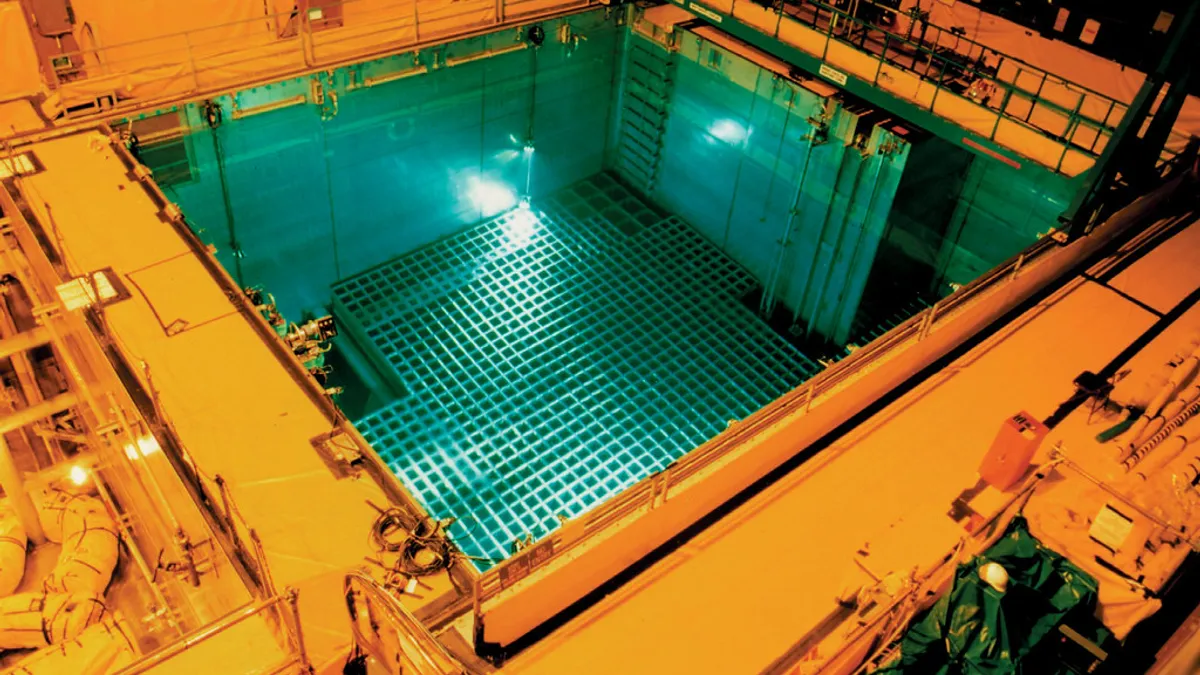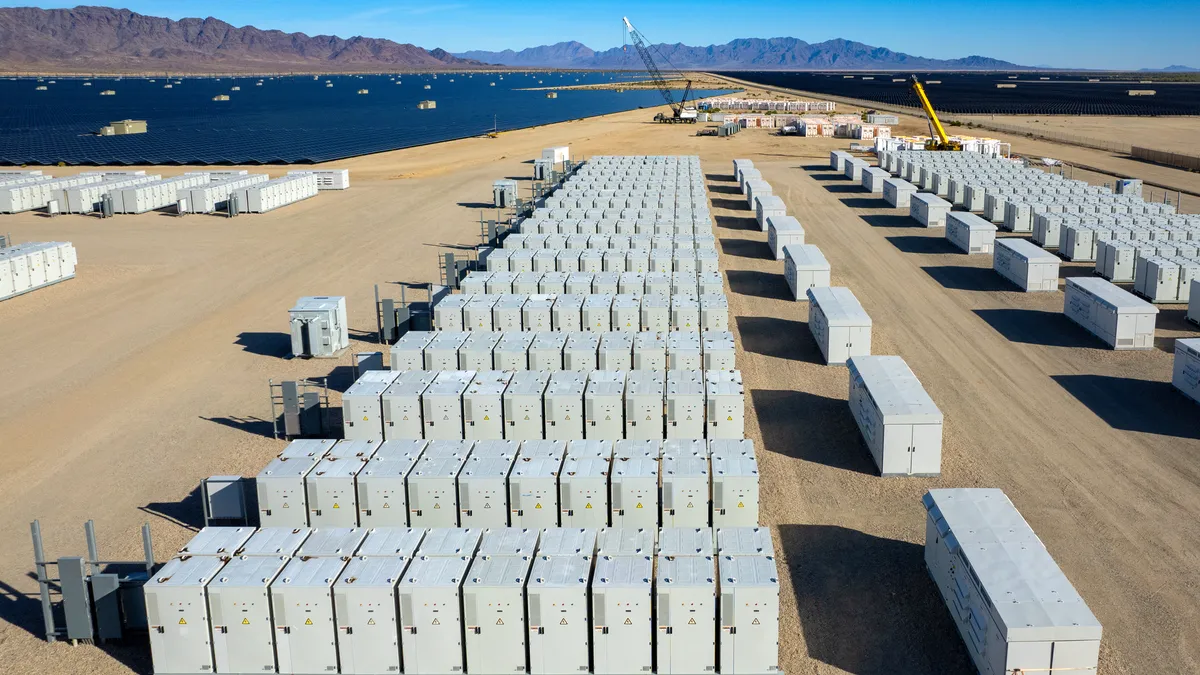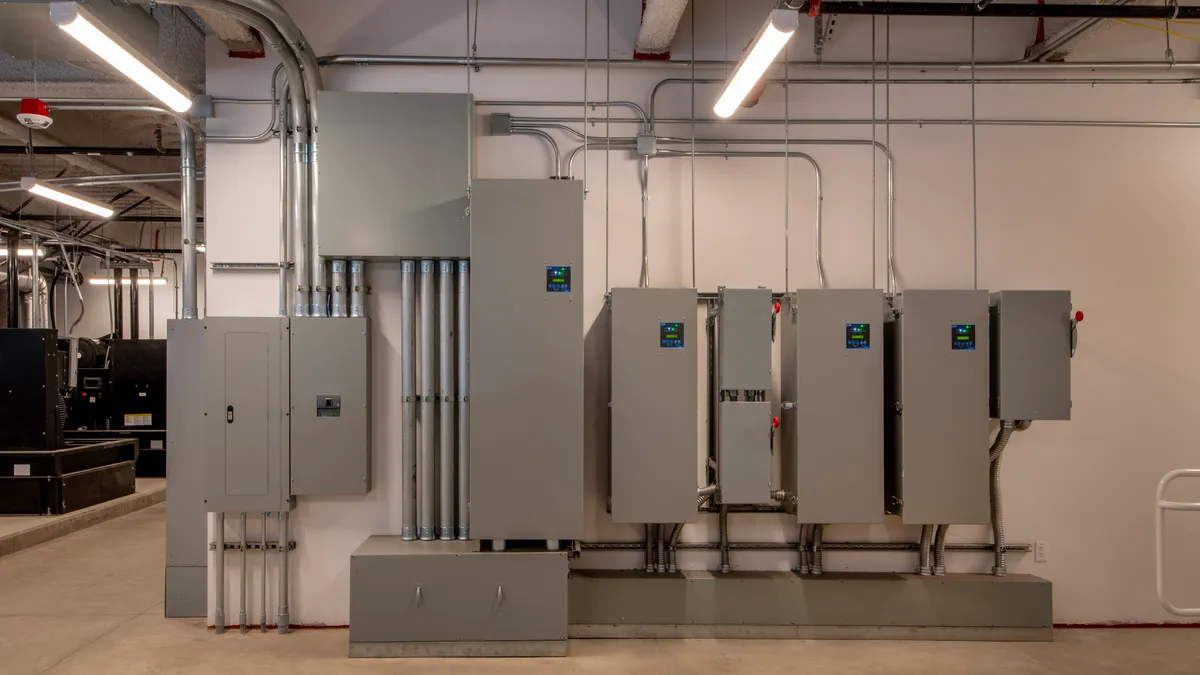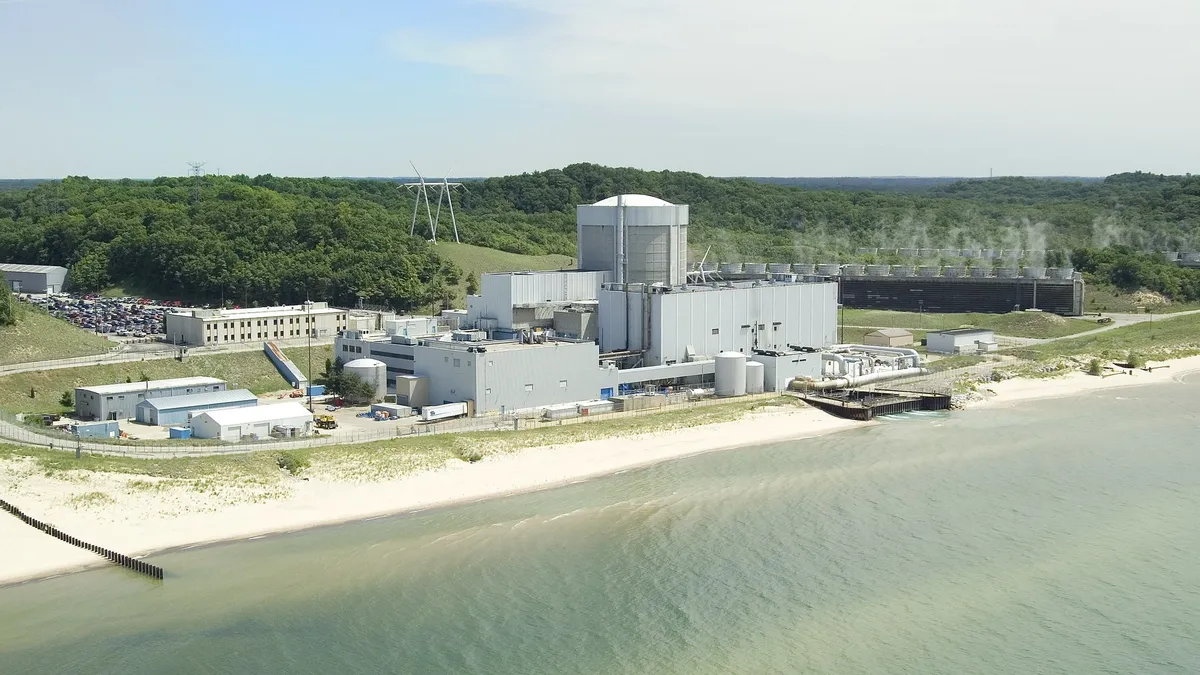The U.S. Court of Appeals for the 5th Circuit ruled Friday that the U.S. Nuclear Regulatory Commission lacks authority to “issue licenses for private parties to store spent nuclear fuel away-from-the-reactor.”
The case centers around a license issued by the NRC in September 2021 to Interim Storage Partners to operate a temporary spent fuel storage facility on the Permian Basin in Andrews County, Texas. Fasken Land and Minerals, a for-profit group working in oil and gas extraction, and Permian Basin Land and Royalty Owners, an association focused on protecting the interests of the Permian Basin, along with the state of Texas and others, petitioned for review of the license.
“The Atomic Energy Act does not confer on the Commission the broad authority it claims to issue licenses for private parties to store spent nuclear fuel away-from-the-reactor. And the Nuclear Waste Policy Act establishes a comprehensive statutory scheme for dealing with nuclear waste generated from commercial nuclear power generation, thereby foreclosing the Commission’s claim of authority. Accordingly, we grant the petition for review and vacate the license,” a three-judge panel of the 5th Circuit ruled.
While the Atomic Energy Act authorizes the NRC to issue licenses for the possession of “special nuclear material,” “source material” and “byproduct material,” which are constituent materials of spent nuclear fuel, “the Act authorizes the Commission to issue such licenses only for certain enumerated purposes — none of which encompass storage or disposal of material as radioactive as spent nuclear fuel,” the 5th Circuit said.
In addition, the Nuclear Waste Policy Act “plainly contemplates that, until there’s a permanent repository, spent nuclear fuel is to be stored onsite at-the-reactor or in a federal facility,” the ruling continued.
The 5th Circuit also rejected as unpersuasive, decisions from the D.C. Circuit Court of Appeals and the 10th Circuit Court of Appeals finding that the NRC has the authority to license private, away-from-reactor nuclear waste storage facilities.
In Bullcreek v. NRC, “the D.C. Circuit essentially assumed that the Atomic Energy Act had granted the Commission authority to license away-from-reactor storage facilities, despite explicitly recognizing that the Act ‘does not specifically refer to the storage or disposal of spent nuclear fuel,’” the 5th Circuit said in its ruling.
“The D.C. Circuit provided no textual basis for its assumption that the statute authorized the Commission to issue such licenses,” the 5th Circuit continued. In Skull Valley Band of Goshute Indians v. Nielson, the 10th Circuit “merely relies on Bullcreek .... It too assumes the Commission’s authority without analyzing the statute.”
Nuclear industry groups disagreed with the 5th Circuit’s ruling.
“In enacting the Atomic Energy Act, Congress established a comprehensive framework to regulate nuclear generation and the related fuel cycle. Congress gave the NRC very broad authority that encompasses licensing at-reactor and away-from-reactor used fuel storage,” Ellen Ginsberg, senior vice president and general counsel at the Nuclear Energy Institute, said in a statement to Utility Dive.
“If the Fifth Circuit’s decision is allowed to stand, we will further delay progress toward a solution,” the statement continued.
“Essentially, the court has ruled that private industry is unauthorized to do the job that the federal government has so far refused to do,” the American Nuclear Society said in a statement to Utility Dive.
“Other countries are forging ahead with geologic disposal, consolidated interim storage, while the U.S. is hamstrung by 40-year-old laws. Congress and the Administration should see this decision as a wake-up call to enact practical policy solutions for the disposal and storage of our spent nuclear fuel,” the statement continued.
However, Beyond Nuclear supported the ruling.
"We are thankful a federal appeals court has ruled that the Interim Storage Partners consolidated interim storage facility (CISF) targeted at Texas is illegal,” Kevin Kamps, radioactive waste specialist at Beyond Nuclear, said in an email. “In a different federal appeals court, we are still striving, after several years, to assert our allegation that the Holtec International CISF, targeted at New Mexico, violates the Nuclear Waste Policy Act of 1983, as Amended, and also the Administrative Procedure Act.”























